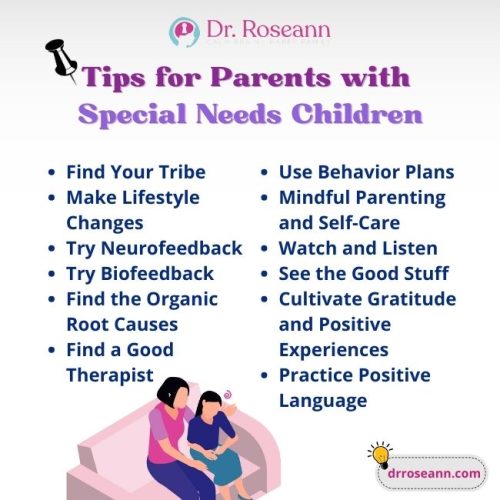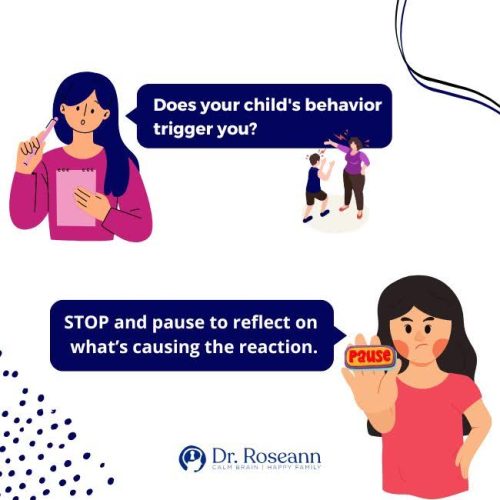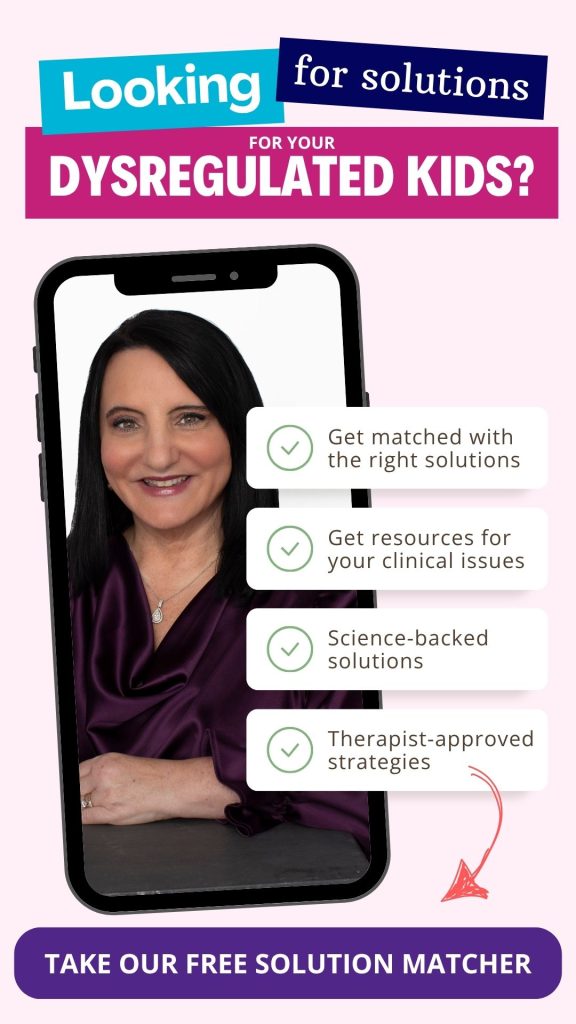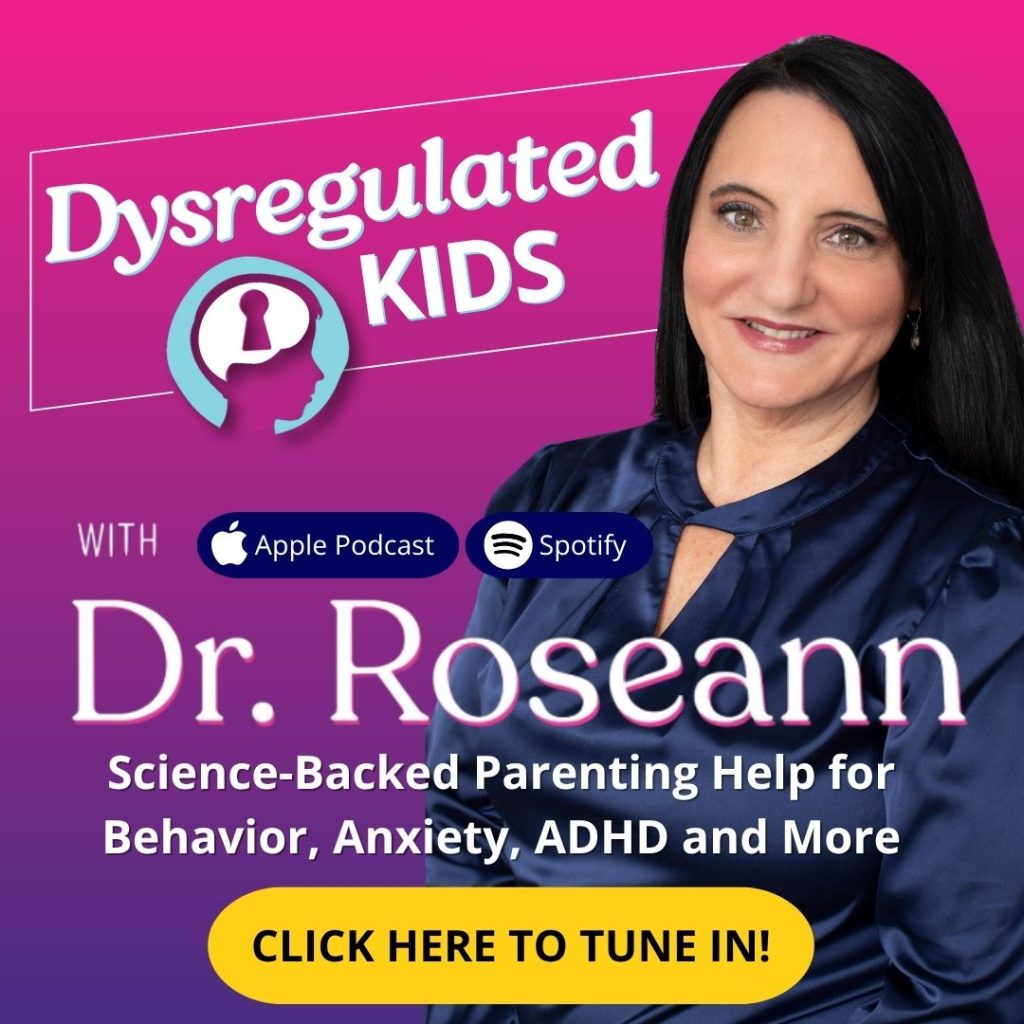Estimated reading time: 6 minutes
Being a special needs parent can feel like running a marathon while carrying a backpack full of bricks. Hard? Absolutely. Meaningful? More than words can say.
Some days you look around and wonder, am I the only one dealing with this chaos? You’re not. Whether it’s ADHD, autism, anxiety, dyslexia, or PANS/PANDAS, countless parents are walking this same rocky path.
The truth? It’s not bad parenting—it’s a dysregulated brain. When we calm the brain first, everything else starts to improve.
In this guide, I’ll share 12 practical, hope-filled tips along with real stories and quick strategies from my 30 years of clinical experience.
What Challenges Do Special Needs Parents Face Most?
Everyday life can feel like a battlefield with no clear map. Parents whisper to me in exhaustion:
- “I’m walking on eggshells every single day.”
- “No one truly gets what we’re going through.”
- “I just want my child happy… is that too much to ask?”
Challenges stack up like heavy bricks in a backpack. Meltdowns erupt at the worst possible times.
Teachers, relatives, even strangers toss out judgmental looks or sharp words. Bank accounts stretch thin while hearts feel even thinner. Confusing advice from different professionals leaves you spinning in circles.
Here’s the raw truth—you aren’t failing. Your child’s nervous system is overloaded, like a circuit buzzing and sparking. When we calm the brain first, connection and healing can finally follow. You’re not alone—and there are proven steps you can take.
How Can I Manage My Own Stress as a Special Needs Parent?
Your steady nervous system works like a lighthouse when your child feels adrift in stormy seas (Alen et al., 2022). When you regulate first, your child can follow your calm. Regulation doesn’t require Everest-level effort — it’s daily drops of calm, like watering a garden, that create lasting change.
Try small, doable things that add up:
- Slow breathing before answering during a meltdown
- Five minutes of walking or stretching each day
- Saying out loud: “I can stay calm even if my child can’t.”
Parent Story:
Emily, a mom of a 9-year-old with anxiety, noticed her son’s panic attacks spiked during homework. When she practiced slow breathing before sitting down with him, he calmed faster. Her regulation helped him regulate.
What Are the Best Ways to Help My Child Regulate at Home?
Calming your child’s brain first makes learning, therapy, and even daily routines feel far less like uphill battles. Once the ground is solid, connection and growth can finally take root.
These simple regulation tools aren’t just tricks — they’re how we prepare the brain to learn and thrive.
- Movement breaks: trampoline, swings, or wall push-ups
- Sensory input: weighted blanket, fidget tools, chewing gum
- Breathing games: blowing bubbles or feathers
How Do I Talk to Teachers About My Child’s Needs?
Partnership with school is critical, but many parents feel dismissed.
Tips for success:
- Use clear language: “When my child is dysregulated, they can’t learn. Here’s what helps…”
- Share simple strategies: movement breaks, sensory supports, calm corner
- Document everything for IEP or 504 meetings
Parent Story:
Mark, dad of a 10-year-old with ADHD, worked with his son’s teacher to allow a standing desk and fidget tool. Instead of disruptions, his son became more engaged.
When schools understand that regulation comes first, connection and learning can follow. Teachers don’t need more discipline tools — they need regulation tools.
What Are 12 Tips Every Special Needs Parent Should Know?

Parenting a differently wired child can feel like trekking up a mountain barefoot on a hot day. Some mornings you wonder if smoother ground even exists. People around you may not see the weight you carry — but I promise I do.
You don’t have to haul this journey alone. Here are 12 small but powerful shifts that can bring calm, clarity, and strength.
1. Find Your Tribe
Parenting in isolation feels like shouting into a storm with no echo back. Connecting with other special needs parents softens that noise.
- Join support groups (online or local)
- Share stories, hacks, and even tears
- Remember: You aren’t alone on this path
Takeaway: Your community is part of your regulation.
2. Make Lifestyle Changes
Overscheduled families run on fumes, and kids’ nervous systems go into overdrive.
- Cut back on activities
- Shift bedtimes earlier
- Eat regular, calming family meals
Takeaway: Structure doesn’t mean rigidity — it means safety and predictability.
3. Try Neurofeedback
Picture a song stuck on the wrong beat. Neurofeedback helps the brain find steady rhythms again.
- Kids often become more flexible and focused
- Reduces reactivity without meds
- Safe, drug-free, and science-backed
Takeaway: Calm the Brain First, Everything Follows.
4. Try Biofeedback
When children see their heartbeat or breathing change in real time, a lightbulb goes off.
- Teaches them control over stress waves
- Helps with homework battles, sleep, and big emotions
- Builds lifelong self-regulation skills
5. Find the Organic Root Causes
What looks like “bad behavior” can actually be physical.
- Food sensitivities
- Nutrient gaps
- Poor sleep patterns
Parent Tip: Keep a simple journal. Small clues often reveal big solutions.
6. Find a Good Therapist
The right therapist helps both your child and you.
- Safe space for emotions
- New perspectives and coping strategies
- A teammate who makes the impossible manageable
7. Use Behavior Plans
Chaos happens when every adult uses a different rulebook.
- Share clear expectations with teachers and caregivers
- Use IEPs or 504s to protect accommodations
- Consistency calms the nervous system
Takeaway: A written plan = less chaos and more calm.
8. Practice Mindful Parenting and Self-Care
Your calm nervous system is the anchor in your child’s storm.
- Daily grounding: breathing, stretching, meditation
- Five quiet minutes is better than none
Self-care isn’t selfish — it’s regulation

9. Watch and Listen
Behavior is communication, even when words fail.
- Notice triggers and patterns
- Model labeling emotions (“I feel frustrated, but I can calm down”)
- Observe first, react later
10. See the Good Stuff
Even on messy days, there’s always one golden moment.
- Snap a photo, jot it down, or say it aloud
- Celebrate the smallest wins
- Collect proof that growth is happening
11. Cultivate Gratitude and Positive Experiences
Gratitude reshapes the brain like water carving stone.
- Point out positive behaviors in real time
- “I noticed how you waited so patiently”
- Shift focus toward hope and progress
12. Practice Positive Language
Words grow roots.
- Replace “You never listen” with “I saw how hard you tried”
- Encouraging words build confidence
- Criticism sparks shame; compassion sparks growth
Raising a child with special needs will stretch you in ways you never thought possible. Yet when you calm their brain first, everything else begins to follow.
What you see as behavior is really brain dysregulation. Decode it, regulate it, and watch your child’s potential unfold.
What Are Effective Daily Routines for Special Needs Families?
Children thrive on predictability. Routines lower anxiety and calm the brain. And remember — it doesn’t have to be perfect. Even small, steady rituals send the message: ‘You’re safe.
Create:
- Morning checklists (visual charts for younger kids)
- Consistent bedtime routines with screens off 60 minutes before
- Meal routines—protein + hydration help regulation
Parent tip: Build in transition rituals (a song, stretch, or hug) to ease between activities.
Read more about: The Neurodivergent Umbrella: A Guide to Understanding and Supporting Neurodiverse Kids
How Can I Help Siblings Feel Supported Too?
Siblings often feel left out when one child’s needs take center stage. But even a small ritual — 15 minutes of tea, a walk, or bedtime reading — helps regulate their nervous system too. These moments send the message: ‘You matter.
Here are some strategies I recommend to parents:
- Schedule one-on-one time weekly
- Validate their feelings: “I know it’s hard when your brother needs so much attention.”
- Involve them in calming routines (family breathing, walks)
Parent Story:
Ana, mom of three, noticed her older daughter withdrew after constant meltdowns from her younger son with OCD. When Ana started “special tea time” with her daughter once a week, her daughter opened up again.
Siblings need reassurance that they matter too.
Parent Action Steps
FAQs
What is the hardest part of being a special needs parent?
The constant unpredictability—meltdowns, school calls, or sibling stress—can feel overwhelming. Remember, it’s not your fault; it’s dysregulation.
How can I stay patient with my child?
Regulation starts with your calm. Small practices like deep breathing and positive mantras help you respond instead of react.
Do special needs parents ever feel less stressed?
Yes. With routines, co-regulation, and supportive communities, stress softens and life feels more manageable.
What if my partner doesn’t parent the same way?
Model calm, share small wins, and keep communication open. Often, one parent’s regulation positively influences the other.
How do I know if I’m doing enough?
If you’re showing up with love, seeking support, and trying again each day—you are enough.
Citations
Alen, N. V., Shields, G. S., Nemer, A., D’Souza, I. A., Ohlgart, M. J., & Hostinar, C. E. (2022). A systematic review and meta-analysis of the association between parenting and child autonomic nervous system activity. Neuroscience and biobehavioral reviews, 139, 104734. https://doi.org/10.1016/j.neubiorev.2022.104734
Mak, C., Whittingham, K., Cunnington, R., & Boyd, R. N. (2018). Efficacy of mindfulness-based interventions for attention and executive function in children and adolescents—A systematic review. Mindfulness, 9(1), 59–78. https://doi.org/10.1007/s12671-017-0770-6
Dr. Roseann is a mental health expert in Neurodivergence who is frequently in the media:
- Seeme & Liz 12 Essential Parenting Tips For Kids with ADHD
- Reconditioned with Laurie Vaknine (Podcast) Managing Anxiety & Mental Health in Children.
- Sparking Wholeness (Audio) Parenting Anxious Kids.
Always remember… “Calm Brain, Happy Family™”
Disclaimer: This article is not intended to give health advice and it is recommended to consult with a physician before beginning any new wellness regime. *The effectiveness of diagnosis and treatment varies by patient and condition. Dr. Roseann Capanna-Hodge, LLC does not guarantee certain results.
Are you looking for SOLUTIONS for your struggling child or teen?
Dr. Roseann and her team are all about science-backed solutions, so you are in the right place!











